Remembering The Legend Bob Marley On His 75th Birthday
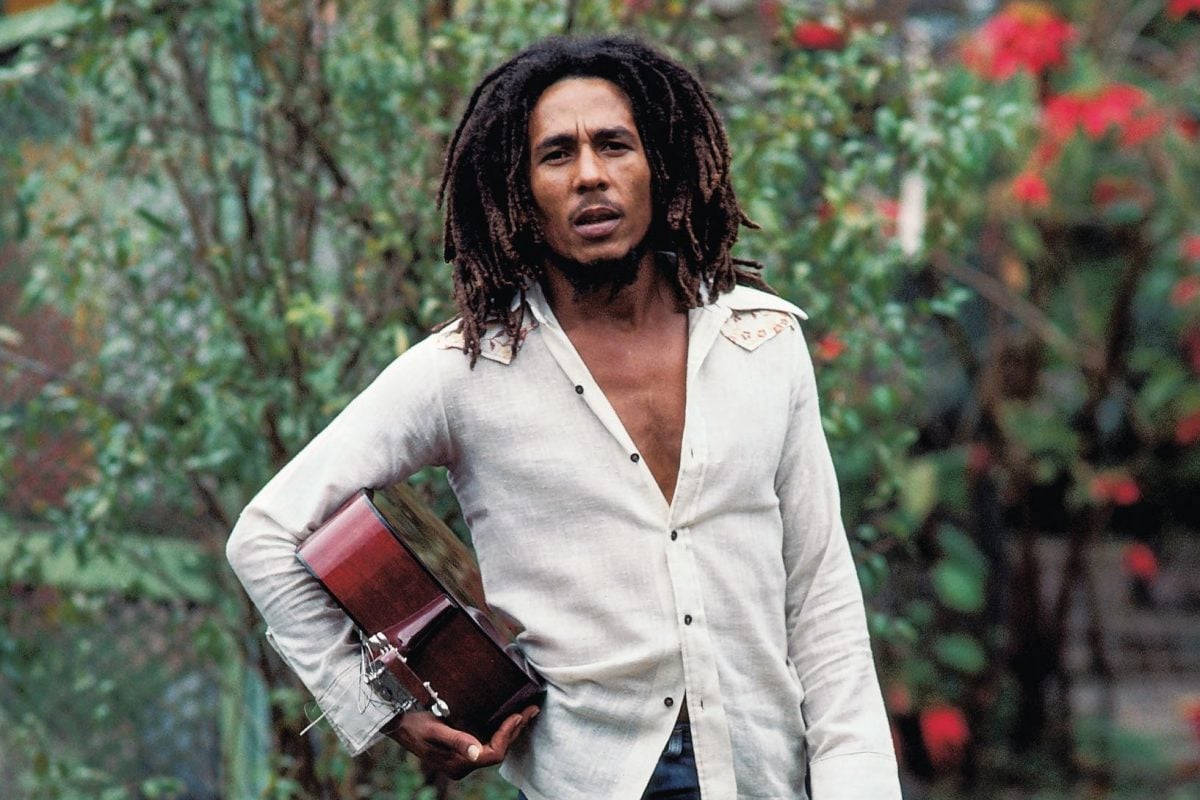
Bob Marley is known worldwide as a musical legend. I personally appreciate the revolutionary side of Marley and his ability to create music that spoke of the oppression that the African (black) working class experience at the hands of colonialism. On his 75th birthday, let’s take a look at the life of Bob.
Bob Marley was born on February 6, 1945 in St. Ann, Jamaica. At age 12, Bob’s mother Cedella moved them to Kingston where they settled in Trench Town. From an early age Bob was drawn to music and would often make silly songs for his family.
By aged 17 Marley was a part of a group called the Wailing Wailers and recorded his first song which was a ska song “Judge Not.” Although the song echoes one of the commandments in Christianity, Bob will soon become interested in Rastafarianism, becoming fully converted in the late 1960s.
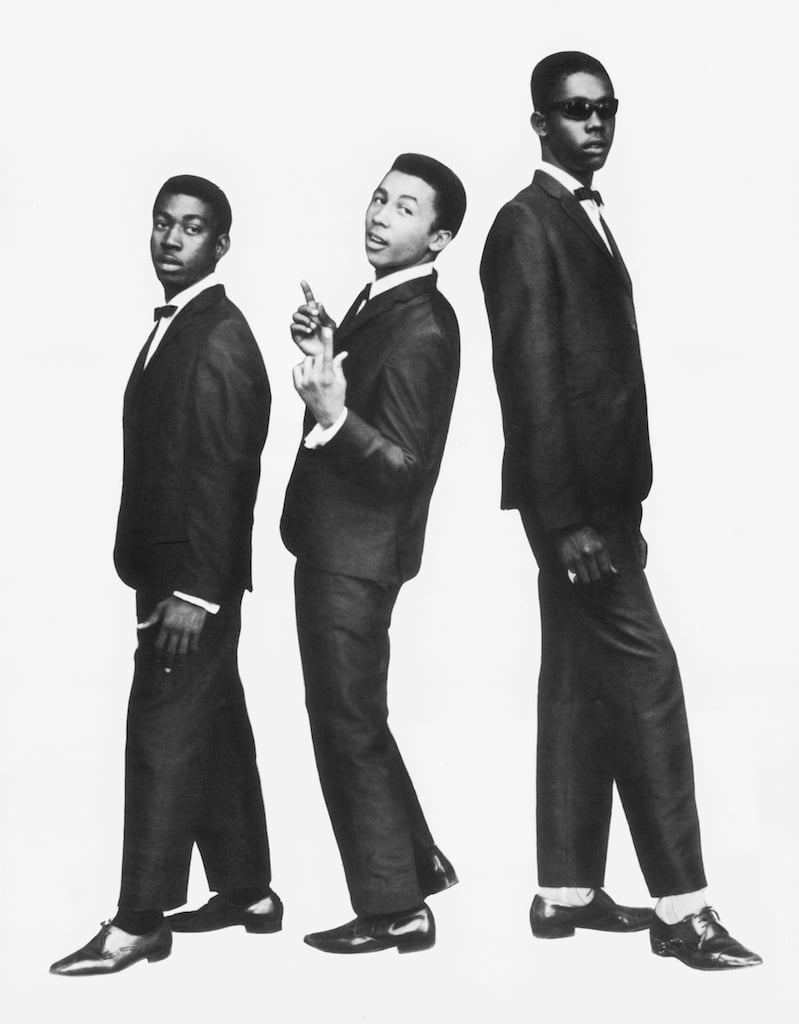
As a young man living in Trench Town, Bob Marley experienced poverty firsthand and observed the relationship that the poor and working class had with the police. It was this reality that helped to shape Bob and his politically charged songs like “I Shot The Sheriff.”
Assassination attempt on Bob’s life
By 1976 political tensions between the two major parties in Jamaica, the Jamaica Labour Party and the People’s National Party, led to tensions between their supporters. Violence was commonplace between warring turfs.
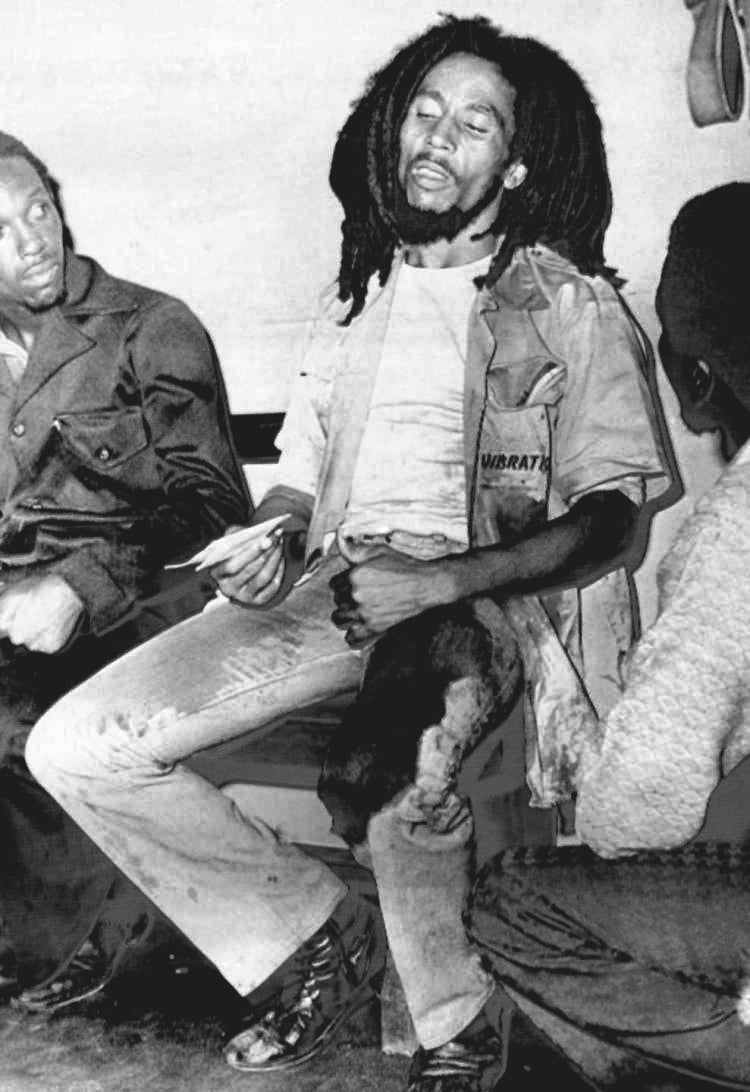
In an attempt to ease these tensions between the two political groups and bring unity, Bob agreed to perform a concert. Two days prior to his performance, however, an unknown gunman tried to assassinate him in his home. Wounded in his chest and arm, Marley made the decision to carry out the concert to show his fellow people that unity has to come first. He wanted to show that if these two political parties can put their differences aside then so can their supporters.
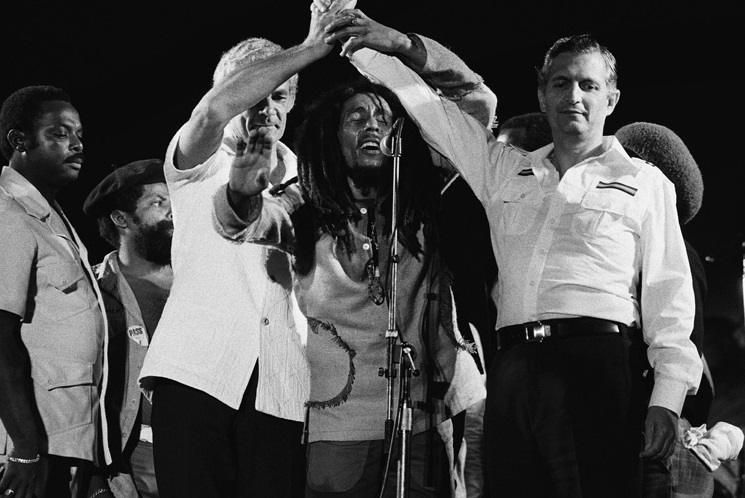
Marley inspires Zimbabwe
Marley released the “Survival” album in 1979 which was politically charged with tracks like “Zimbabwe” and “Africa Unite.” This album echoed Marcus Garvey’s vision for a united Africa and showed his support for the struggles of African people living on the Continent. “Survival” was viewed as such a threat by the apartheid government that it was partially censored.
On April 17, 1980, Bob was invited to perform at a celebration of Zimbabwe’s Independence Day. He agreed, hired a PA system in London and paid for his freight to Zimbabwe at his own expense.
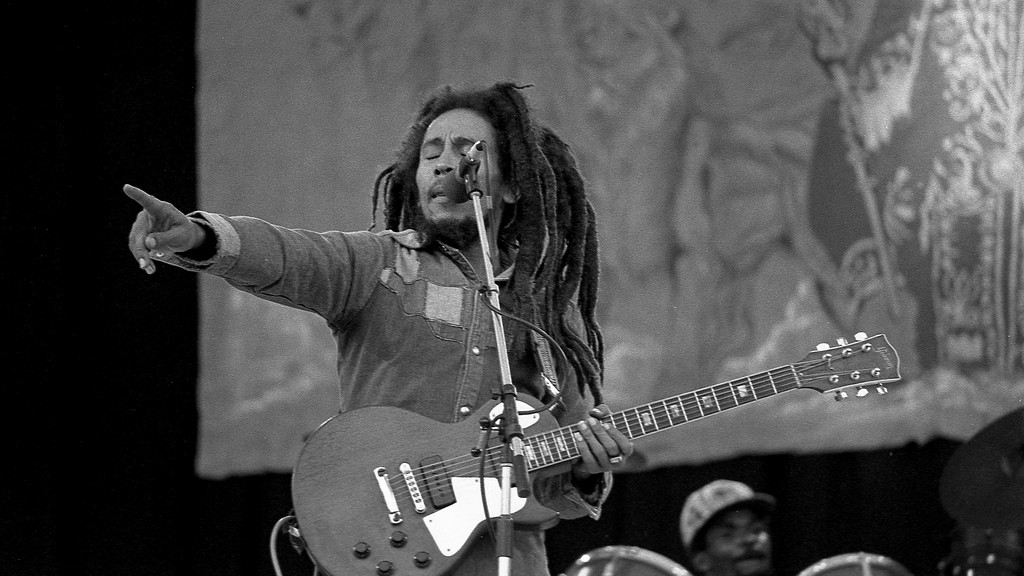
Marley had inspired Zimbabwe during their struggle for liberation. Bob Marley’s music was adopted by the guerrilla forces of the Patriotic Front as they played his cassette tapes in the bush.
During the Zimbabwe Independence concert, tear gas was set off to disperse the crowd, yet Bob and his band carried out their powerful performance.
Marley’s death
Bob Marley was diagnosed with malignant melanoma in 1977 which first presented itself in his toe. Refusing to amputate for religious and performative reasons, he opted for a skin graft instead.
By 1980 his health deteriorated and he went to Germany to receive treatment. However the cancer spread throughout his body. With the treatment being unsuccessful, he boarded a plane for Jamaica but had to land in Miami to receive immediate medical attention. Marley died in Miami on May 11, 1981 at the age of 36.
Continuing Marley’s revolutionary Legacy
Thirty-nine years have passed since Bob’s death. But his revolutionary legacy lives on today through his music, performances and video interviews.
The Marley family is also working to uphold his legacy. They have announced that throughout 2020 they will be celebrating what would have been Bob’s 75th year by releasing new art and unreleased music with a project named “Marley 75.” The first installment of this project, an animated music video for his 1980 “Redemption Song,” was released yesterday.
I am interested to see the upcoming installments of Marley 75. It’s important to preserve the legacy of one of the most significant people to ever come out of Jamaica.
